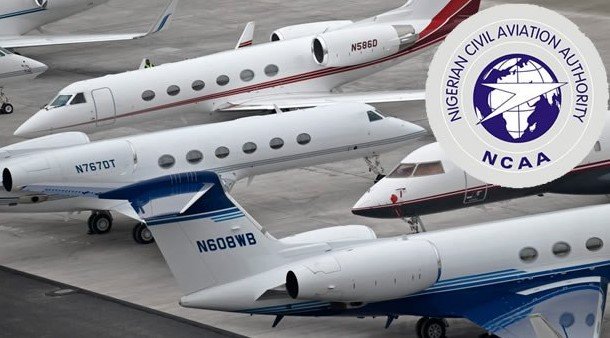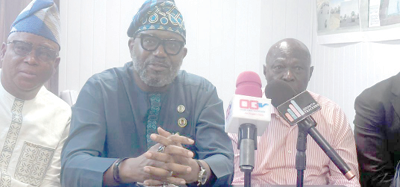
THE Nigeria Civil Aviation Authority (NCAA) has predicted that the country’s air passenger volume will increase to 25.73 million by 2029.
The Average Revenue Per User (ARPU) is also expected to be about $100.30, the apex regulatory agency forecast in its report.

An official of Gulf Pole Concerns Limited, Dr Emeka Okengwu, stated these in a paper he presented at the South-West Regional Air Transportation Summit (SWRATS) 2024, hosted by the NCAA with the theme: ‘Leveraging Global Aviation Finance Mechanisms Reminiscence of the Cape Town Convention’, described the 25.73 million estimated passenger traffic as an increase from the current 15.89 million in 2023 and 16.17 million in 2022.
This indicated an increase of almost 10 million passengers’ traffic growth by 2029 when compared to 2023 figure and about nine million growth with the 2022 data as released by NCAA.
Okengwu pointed out that the data obtained from the NCAA indicated that the projected user penetration for 2024 is 6.8 percent, which is expected to grow to 10 per cent by 2029.
Also, the projected revenue for the flights market in Nigeria is expected to reach $1.56 billion by 2024, stressing that this figure is projected to grow annually at a rate of 10.59 percent, hereby resulting in a market volume of $2.58 billion by 2029.
According to him, by 2029, 85 percent of the total revenue generation in the flights market is expected to come from online sales.
Okengwu, however, regretted that despite the array of airlines in Nigeria, none of them was listed on the global alliances or even as an associate member or inter-links co-share.
According to Okengwu:“There are obvious systemic issues that bother the absence of functional corporate governance structure among airline operators. Passenger traffic with over 92 per cent concentrated around three major airports; Lagos, Abuja and Port Harcourt was put at 15.89 million in 2023, a fall of over 0.28 million from the 16.17 million statistics of 2022.
“As a result of the above, Nigerian airlines operate point –point and scheduled integrity is placed at about 62 per cent. However, it is important to note that Nigeria now boasts of improved aviation infrastructural facilities at the airports’ state of the art navigational aids, modern weather forecasting equipment and highly skilled manpower to ensure safety and comfort of the flying public.”
In his remarks, the Chairman, Senate Committee on Aviation, Senator Buhari Abdulfatai made case for reduction of routes for some indigenous airlines by NCAA to ensure schedule integrity.
Abdulfatai lamented that while other countries’ airlines took on-time departure seriously, the reverse was the case with the Nigerian carriers as they continually violated passengers’ rights without sanction from the NCAA.
He proposed that any airline with just two aircraft in its fleet for instance, should be limited to a few airports and landings, maintaining that this would lead to massive reduction in flight delays and cancellations.
Abdulfatai, therefore, proposed a minimum of four aircraft for a startup carrier and charged the NCAA to stand up to its responsibilities of oversighting the industry saying: “If we have fairness and justice in our system, the industry would attract a lot of people and we would get better services. For instance, Overland Airways, there was a day I flew the airline from Abuja to Ilorin Airport, we were only two passengers onboard; the two of us were in the National Assembly. That was in their early years in 2007.
“But today, the airline is now big; it takes time for you to grow. It’s because Nigerian passengers always take a lot of abuse from the airlines, that is why the airlines continue to treat the passengers without respect.”
Earlier, in his welcome address,the Acting Director-General of the NCAA, Captain Chris Najomo, said the specific objectives of the summit were to bring together critical stakeholders to advocate for adequate funding, sound financial management and operational safety in the country’s civil aviation industry.
Read Also: Energy survey: 85.2% households use estimated billing — NBS







